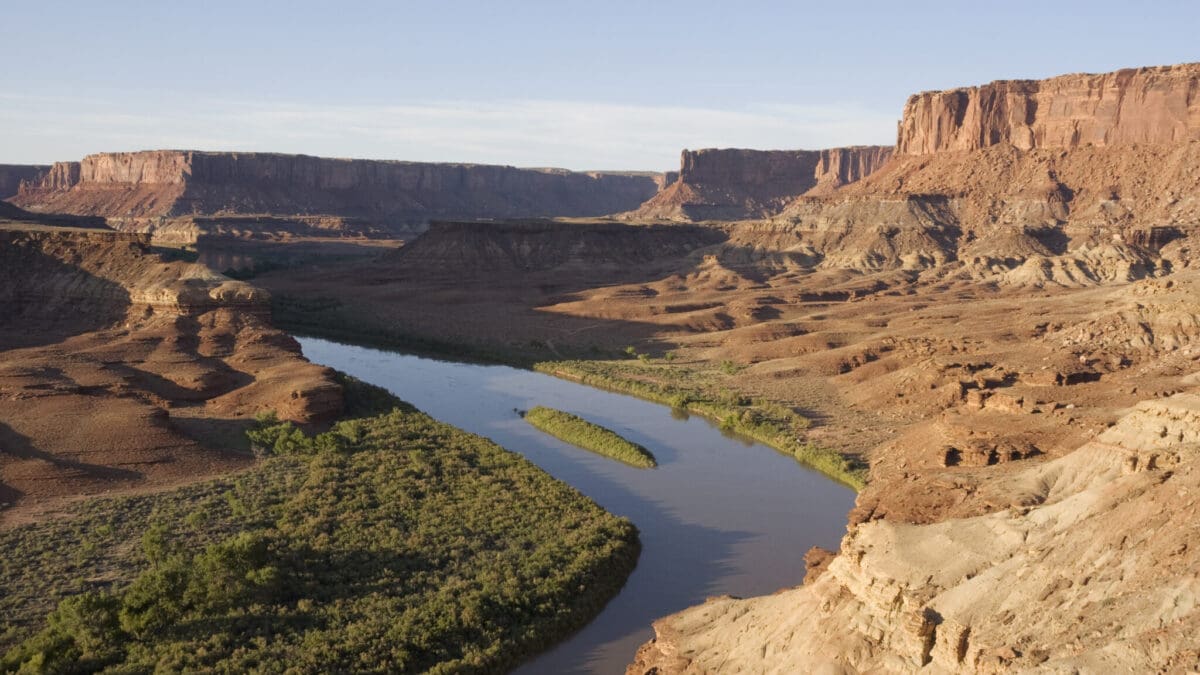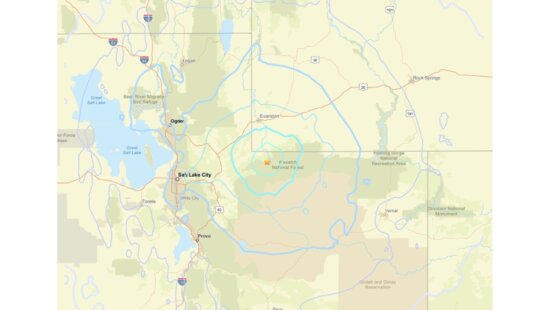Politics
Mineral company’s plan to produce lithium in southern Utah hit with lawsuit

The Green River is pictured in Canyonlands National Park in Utah. Photo: John Elk via Getty Images
By Kyle Dunphy, Utah News Dispatch
A group of environmental nonprofits and southern Utah residents are suing a mineral company and the state engineer who approved its application to produce lithium along the Green River.
Filed on Tuesday in Utah’s 7th District Court in Moab, the lawsuit names Utah Division of Water Rights director Teresa Wilhelmsen, who also serves as the state engineer, and Blackstone Minerals, a subsidiary of Australian-based Anson Resources.
A representative for Anson did not respond to a request to comment on Thursday. And the Division of Water Rights said it had not yet been served, but did not comment further.
Blackstone’s plan to produce lithium near Green River, a small community along Interstate 70, was approved in September by Wilhelmsen. The lawsuit asks the court to overturn her decision.
In 2023, the company filed an application seeking 19 cubic feet per second from aquifers near the Green River — that’s about 14,000 acre-feet of water each year, roughly enough to fill some of the state’s smaller reservoirs.
The water, called brine, has a high concentration of salt. Through a relatively novel process called Direct Lithium Extraction, Blackstone would separate the lithium from the brine using what’s called lithium extraction resin and additional water pulled from the Green and Colorado rivers.
Anson CEO Bruce Richardson called the project “as green as possible” during a meeting with lawmakers last year. The company markets the process as “non-consumptive,” meaning the brine extracted from the aquifers would be pumped back underground.
Lithium is used to manufacture rechargeable batteries and is essential to electric vehicle production. Most of the world’s lithium currently comes from Australia, Chile and China, according to the World Economic Forum, and Richardson said the Green River project would provide a domestic source, while boosting the country’s push for renewable energy. It would also bring between 300 and 500 jobs to the Green River area, he said.
But environmental groups are skeptical, including Living Rivers and the Great Basin Water Networks, which have opposed the project since its inception and filed the lawsuit this week. Holiday River Expeditions, a guiding operation based in Green River, and Gayna Salinas and Kelly Dunham, Utahns who have water rights adjacent to the lithium project, are also suing Blackstone and Wilhelmsen.
“This proposed lithium extraction site will be mere feet from my front yard and the river,” said Salinas, who farms along the Green River, in a statement. “We are not assured that the State Engineer’s decision follows the letter of the law. This lawsuit is an important next step for the people and resources of Green River to ensure accountability.”
Blackstone filed its application in July 2023. The environmental groups and some federal agencies, including the Bureau of Land Management, or BLM, and Bureau of Reclamation, later voiced concerns over the project — the BLM said the application was premature because the company hadn’t yet sought its approval to operate on federal land.
And Reclamation worried the project would withdraw water from the beleaguered Colorado River. Plus, the company had “not provided sufficient information to demonstrate that water returned to the hydrologic system following mineral extraction would not contaminate or otherwise affect nearby water sources or downstream users,” the bureau wrote to the Utah Division of Water Rights.
Environmental groups and several Green River residents also protested the project over concerns that it would require drilling through an aquifer contaminated by radiation from an old uranium mill.
In May, Wilhelmsen approved the project’s water rights application. Environmental groups again challenged the decision, filing a request for the division to reconsider the application — in June, that request was granted, temporarily pausing Blackstone’s operation.
In September, Wilhelmsen again approved the application.
That decision gives a “foreign-backed company another free pass from Utah regulators to turn Green River into an energy colony,” said John Weisheit, conservation director of Living Rivers, in a statement. “The courts must consider the arbitrary and capricious nature of the State Engineer’s decision.”
The lawsuit claims that decision should be invalidated because the project could impair existing water rights, while interfering with “the more beneficial use of the water.” The company also hasn’t filed “a contract for payment of royalties” which is required by the state, the complaint alleges.
And, the project is “detrimental to the public welfare,” with the lawsuit arguing the state is unable “to assess the legitimacy of Blackstone’s claims related to direct lithium extraction and its impacts on water consumption and water rights.”
“What happens in Green River will have a ripple effect across Utah, putting deep underground water supplies in the crosshairs of companies throughout the world,” said Kyle Roerink, executive director of the Great Basin Water Network, in a statement. “The Green Energy transition cannot be a gold rush that impacts any water body in the Colorado River Basin. This important action ensures we get the best decisions possible for local communities targeted by companies looking to make a fast buck.”




















